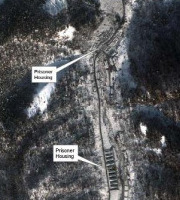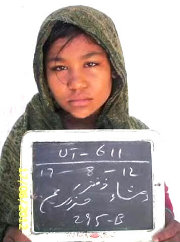By Michael IrelandChief Correspondent, ASSIST News ServiceKARNATAKA STATE, INDIA (ANS) -- With the state assembly elections In India's Karnataka State not too far away, attacks on Christians in the south Indian state are being reported almost every other day.
The frequency and the intensity of attacks might further increase with the upcoming election, says a report from the World Evangelical Alliance, researched and written by Fernando Perez, and moderated by the WEA-RLC Executive Director, Godfrey Yogarajah.
The WEA report says the ruling Hindu nationalist Bharatiya Janata Party (BJP) appears to be consolidating its Hindu votebank in the wake of a new crisis.
Attacks on Christians increased in the state after the BJP came to power on its own in May 2008, after being part of a ruling alliance with a regional party, the Janata Dal-Secular, for about 20 months, the WEA report says.
It states: "While Hindu nationalist groups had been working in Karnataka for decades -- due to the presence of some highly influential Hindu shrines in the state, those groups began to freely implement their agenda only after the BJP's rise to power."
In its analysis, the WEA report says that in the months of August and September in 2008, at least 28 attacks were reported in the state. According to the New Delhi-based Evangelical Fellowship of India (EFI), Karnataka saw at least 48 attacks in 2009, and in 2010 the number increased to 56. In 2011, the number slightly decreased to 49 attacks.
The report says: "However, the incidence of attacks has been much higher in the recent months. And the total number of attacks is expected to be unprecedented by the end of this year, thanks to a crisis within the Hindu nationalist party which could further deepen as the election comes closer."
The WEA says that some key leaders of the Karnataka unit of the BJP are facing corruption charges, and the party is also divided within. Former chief minister B.S. Yeddyurappa, who was accused of illegally allotting land and illegally granting mining licenses, was forced by the national party leadership to resign in July 2011. Now, he has announced his decision to leave the party and form his own "secular" political group by December.
The WEA explained that Yeddyurappa belongs to the Karnataka's largest caste community, Lingayat. Though also Hindus, the Lingayats -- who represent more than 20 percent of the state's population -- differ from mainstream Hinduism in certain religious matters. "They have a distinct sense of identity as opposed to other Hindu caste groups. The BJP's first-ever election victory in Karnataka in 2008 was attributed to the party's decision to have Yeddyurappa, from the Lingayat community, as its chief ministerial candidate."
The WEA report goes on to say that, "Now in the run up to the state election due in 2013, the BJP had little choice but to let Yeddyurappa leave. For, corruption is currently the biggest national issue, and the party could not take a risk by featuring him again as its chief ministerial candidate.
"Therefore, the BJP can no longer depend on the Lingayat votebank for re-election in 2013. BJP's second-most influential Lingayat leader in the state, Jagadish Shettar, may or may not be able to bring many votes from the community. Moreover, Yeddyurappa is also expected to take several legislators of the BJP to his new party."
The WEA asks: "So how will the BJP deal with the crisis?" A statement recently made by a former leader of the Bajrang Dal, a violent Hindu extremist group that has been closely associated with the BJP, sheds light on this question.
The WEA said the BJP is trying to bring the state's Hindus together by raising issues against Christians and Muslims. Mahendra Kumar, who was state unit president of the Bajrang Dal until 2009, told the Tehelka magazine recently. "They [state BJP leaders] are in a process of consolidating the Hindu vote bank as they will have to face polls in 2013," he said, referring to Yeddyurappa's expected departure.
The WEA report further explained that "Due to the caste system in Hinduism, and politicization of those caste divisions, no party can easily mobilize Hindus as one votebank. However, this has been done for years by projecting the Christian and Muslim minorities as enemies of all Hindus."
The WEA says that Kumar, who was in jail for 42 days as the main accused in a spate of attacks on Christians in 2008, divulged more to the magazine. He said the days he spent in jail proved to be a turning point of his life, and led him to eventually quit the Hindu nationalist movement.
The WEA report continues by saying that Kumar confirmed what many in India believe, that Hindu nationalism, or Hindutva, "is a political strategy and it has nothing to do with Hinduism or the welfare or benefit of Hindu society." He added that Hindu nationalists play on emotions, "projecting wrong history and some negative points of the minority community, hatred is sown among the Hindu youth," merely to get Hindu votes. Hindu nationalists typically allege that Christians are bribing Hindus to convert them, and denigrating their gods.
The WEA says: "Raising the issue of conversion may also be to divert people's attention away from corruption charges on BJP leaders and the visible divide within."
For example, on Oct. 24, when television channels questioned BJP national president Nitin Gadkari on source of funds for companies owned by him, Mohan Bhagwat, the chief of the Rashtriya Swayamsevak Sangh (RSS) that is believed to be the parent organization of the BJP, suddenly called for the construction of a temple of Hindu god Rama where once the Babri Mosque stood in the northern Uttar Pradesh state. The call for the Ram temple at the disputed location has been one of the most divisive communal issues independent India has witnessed in its history.
WEA concludes: "Christian groups in India have diligently reported incidents of violence against Christians in Karnataka and other states. Since the documentation is available, they could possibly approach the Karnataka High Court through a writ petition, seeking issuance of directives to the state police and government to ensure the security of the minority community.
"This is perhaps the only way to compel the state to do its duty as long as the BJP is the ruling party."
World Evangelical Alliance (WEA) Religious Liberty Commission (RLC) sponsored this WEA-RLC Research & Analysis Report to help individuals and groups pray for and act on religious liberty issues around the world. WEA has a consultative status with the UN Economic and Social Council.












